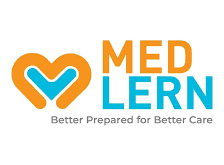Breast health often remains a silent topic in many Indian homes, a subject wrapped in hesitation and stigma. For caregivers and parents, this silence can be painful, as it may delay crucial awareness and early action that saves lives. Encouraging open conversation about breast health empowers families to break barriers, share knowledge, and protect the women they love. When conversations become normal and supportive, early detection and prevention become possible, offering hope instead of fear.
Why Stigma Holds Women Back
When breast health is wrapped in shame, women hesitate to speak up. In Indian studies, some women expressed fear that others would avoid them, whisper about them, or see them differently if they were known to visit a cancer clinic. In surveys of cancer patients and caregivers, a large majority reported experiencing or internalizing stigma, believing that the community views cancer as a curse, as something contagious, or as a sign of personal failing.
Many women say they “must suffer quietly” and avoid telling even close family about symptoms or fear. These fears often cause delay, avoiding clinical visits, ignoring lumps, or hiding symptoms until disease has advanced.
How Stigma Manifests
-
Silence in the home: Women don’t share symptoms for fear of gossip or shame.
-
Social isolation: Some are excluded from social or religious functions after diagnosis.
-
Household separation: In extreme settings, patients may be asked to use separate utensils or rooms.
-
Fear of judgment: Worries about marriage prospects, community glance, or being seen as “impure” prevent disclosure.
Impact of stigma on breast cancer outcomes
Stigma and silence contribute to delays in noticing symptoms and getting screened. According to Indian health studies, many women discover breast cancer only at advanced stages, when treatment is more complex and less effective. A lack of open dialogue reduces awareness about screening guidelines and self-examination techniques that could detect problems early. Breaking stigma means increasing the chances that women find care before cancer progresses, reducing suffering and saving lives.
How families can encourage open conversations
Parents and caregivers play a vital role in creating a safe space for talks about breast health. Here are ways families can nurture open dialogue:
-
Normalize the topic: Include breast health as part of general health discussions, just like nutrition or exercise.
-
Use simple language: Describe breast anatomy and early warning signs in straightforward, non-medical terms.
-
Show empathy and support: Listen carefully without judgment and reassure your loved ones that seeking care is brave and necessary.
-
Share stories: Real-life examples of women who found cancer early and recovered can motivate others to act.
-
Practice together: Encourage mothers, daughters, and sisters to learn breast self-examination methods as a family activity.
Empowering women with knowledge and screening
Alongside open talks, educating women about the importance of regular self-exams and clinical screenings is essential. Healthcare guidelines recommend monthly self-breast exams from the 20s and clinical breast exams or mammograms, starting at the age 40 or earlier for high-risk women. When families support these practices and accompany women to health check-ups, it reduces fear and stigma around medical visits.
Community and healthcare roles in stigma reduction
Beyond families, community leaders, educators, and healthcare providers must team up to change public attitudes. Awareness campaigns tailored to local languages and culture help dispel myths and encourage dialogue. Training healthcare workers to create welcoming environment for women, seeking breast health advice makes a difference. Expanding accessible screening services in both urban and rural areas ensures that stigma does not translate into inaccessibility.
A New Dawn: Talk Today, Thrive Tomorrow
Stigma around breast health is a heavy, silent burden, one that steals lives by delaying diagnosis and isolating women. But when we break silence, families, communities, and health systems open their voices, fear is removed, bringing support, and creating pathways to care.
To every reader: start the conversation today. Encourage the women you care about to speak, to seek help, to break free from shame. Because health begins with truth, not silence.
Takeaway: Open your home and your voice. Let breast health become a discussion, not a secret. When we talk, we heal.
DR. R V RAGHUNANDAN, Senior Consultant – Radiation Oncology, HCG MNR Curie Cancer Centre at Ongole
 Newspatrolling.com News cum Content Syndication Portal Online
Newspatrolling.com News cum Content Syndication Portal Online






